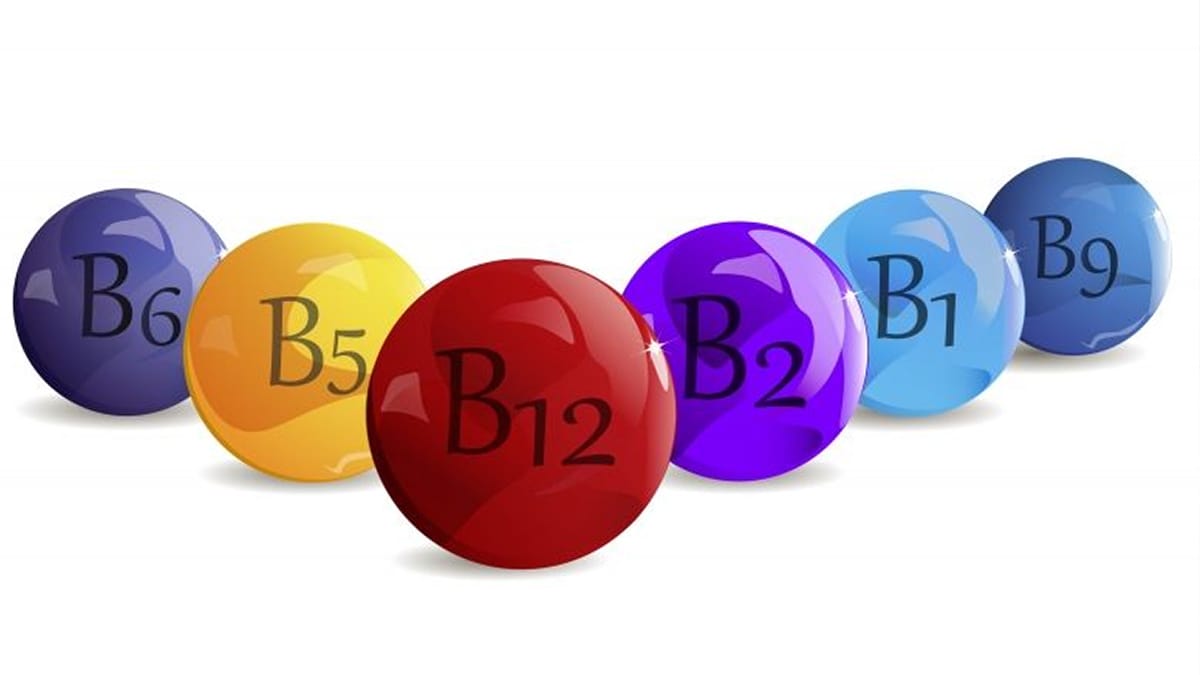5 Vital Benefits of Vitamin B2 (Riboflavin) for Skin and Metabolism
Vitamin B2, also known as riboflavin, is a small but mighty nutrient your body can’t live without. It plays a central role in energy production, cell repair, and maintaining healthy skin, eyes, and nerves. In fact, without enough Vitamin B2, your body can’t properly metabolize carbohydrates, fats, or proteins. The result? Tired skin, low energy, cracked lips, and even premature aging.
5 Vital Benefits of Vitamin B2 (Riboflavin) for Skin and Metabolism
In this guide, we’ll explore five scientifically proven benefits of Vitamin B2 (Riboflavin) for skin and metabolism and reveal why this nutrient deserves a permanent spot in your daily diet.
1. Enhances Cellular Energy and Metabolism
Every cell in your body depends on riboflavin to generate energy efficiently. Vitamin B2 acts as a coenzyme in the breakdown of food into ATP (adenosine triphosphate) your body’s main energy currency.
Riboflavin helps activate two essential molecules: flavin mononucleotide (FMN) and flavin adenine dinucleotide (FAD). These compounds drive key metabolic reactions in your mitochondria, ensuring you convert nutrients into usable power instead of storing them as fat.
When Vitamin B2 levels drop, your metabolism slows dramatically. You may feel exhausted even after rest, or find it hard to maintain muscle mass and energy balance. Studies published in Nutrients (2021) show that riboflavin deficiency impairs mitochondrial function and oxygen use, directly reducing physical performance and cellular repair.
In short: Vitamin B2 keeps your metabolism running smoothly like premium fuel for your biological engine.
2. Promotes Clear, Radiant, and Youthful Skin
Here’s where Vitamin B2 truly shines. Riboflavin is essential for skin cell renewal, collagen maintenance, and sebum regulation. It helps the skin repair itself faster after damage from UV rays, pollution, or acne inflammation.
Low Vitamin B2 levels can cause dryness, redness, and flaking around the nose and mouth — a condition called “ariboflavinosis.” It’s a visible sign your skin isn’t getting enough of this key vitamin.
According to dermatologists at The Journal of Cosmetic Dermatology, Vitamin B2 supports healthy mucous membranes and protects the skin barrier by increasing antioxidant enzyme activity. These antioxidants fight free radicals that accelerate wrinkles and fine lines.
Many skin experts also recommend riboflavin for people dealing with acne-prone skin because it helps regulate oil production and speeds up healing from breakouts.
Real-life example: Some users report significant improvement in skin glow and smoothness after just 3–4 weeks of increasing Vitamin B2 intake through diet or supplements.
In short: Want naturally glowing skin without expensive serums? Riboflavin works from the inside out — giving your skin the nutrients it needs to regenerate beautifully.

3. Acts as a Powerful Antioxidant to Combat Oxidative Stress
Every day, your body is exposed to stressors — from air pollution and sunlight to poor diet and lack of sleep. These trigger the production of free radicals, unstable molecules that damage your cells and accelerate aging.
Vitamin B2 helps neutralize these free radicals by supporting the body’s antioxidant defense system, including enzymes like glutathione reductase. This enzyme helps regenerate glutathione — one of your body’s most powerful natural antioxidants.
Without enough riboflavin, glutathione can’t do its job effectively, leaving your cells vulnerable to oxidative damage. Over time, this contributes to wrinkles, dull skin, and chronic inflammation.
A study published in Free Radical Biology & Medicine found that adequate riboflavin intake was linked to lower markers of oxidative stress and inflammation in healthy adults.
In essence: Vitamin B2 doesn’t just make you look good — it helps your cells stay young, resilient, and protected.
4. Supports Fat, Protein, and Carbohydrate Metabolism
Riboflavin is essential for the metabolism of the three major macronutrients — fats, carbohydrates, and proteins. It helps your body break these nutrients down efficiently to produce energy and maintain balanced hormone levels.
Deficiency in Vitamin B2 can lead to poor nutrient absorption, weight fluctuations, and even sluggish metabolism. Athletes or individuals on high-protein diets especially need adequate riboflavin for energy recovery and muscle repair.
Research in the American Journal of Clinical Nutrition found that low riboflavin levels in athletes were directly linked to slower recovery times and decreased endurance performance. Supplementation helped restore their energy metabolism within two weeks.
Pro tip: Pair riboflavin with other B vitamins, like B1 and B3, to optimize metabolic synergy and maximize energy output throughout the day.
5. Aids in Detoxification and Hormonal Balance
Vitamin B2 also plays a key role in liver detoxification — the process of neutralizing toxins and eliminating waste. It assists enzymes that metabolize drugs, alcohol, and other harmful compounds.
When the liver is overloaded or sluggish, your skin often reflects it: acne, dullness, and hormonal breakouts can appear. Riboflavin ensures your liver functions efficiently, indirectly keeping your skin clear and your hormones balanced.
Riboflavin also supports the conversion of Vitamin B6 and folate into their active forms — both of which are crucial for regulating mood, hormonal health, and red blood cell production.
In short: Riboflavin keeps your inner system clean, balanced, and resilient — and your outer glow follows naturally.
Best Food Sources of Vitamin B2 (Riboflavin)
You can easily get riboflavin from natural whole foods such as:
• Eggs
• Milk and yogurt
• Almonds
• Lean meats (especially liver)
• Leafy greens (spinach, kale)
• Fortified cereals
• Mushrooms
Because riboflavin is water-soluble, your body doesn’t store it — meaning you need daily intake. Cooking and exposure to light can also degrade it, so store foods properly and avoid overcooking to retain nutrients.
Signs of Vitamin B2 Deficiency
• Cracked lips or corners of the mouth
• Dry or scaly skin
• Eye fatigue or light sensitivity
• Hair loss or brittle nails
• Slow wound healing
• Fatigue and poor concentration
If you experience these symptoms, you might benefit from increasing riboflavin intake through food or supplements.
Recommended Daily Intake
According to the National Institutes of Health (NIH):
• Men: 1.3 mg per day
• Women: 1.1 mg per day
• Pregnant women: 1.4 mg per day
• Lactating women: 1.6 mg per day
Because it’s water-soluble, excess riboflavin is excreted through urine — making toxicity virtually impossible.
When to Consider Riboflavin Supplements
Consider supplementation if you:
• Have limited dairy or meat intake
• Follow a vegan or vegetarian diet
• Are pregnant or breastfeeding
• Exercise intensively
• Experience skin or metabolic issues
Look for bioavailable forms such as riboflavin-5-phosphate for better absorption.
Frequently Asked Questions (FAQ)
1. Can Vitamin B2 improve my skin health?
Yes. Riboflavin supports skin cell repair, reduces inflammation, and regulates oil production, giving you clearer, smoother skin.
2. Is Vitamin B2 good for metabolism and weight control?
Absolutely. Riboflavin helps convert food into energy efficiently, preventing sluggish metabolism and unwanted weight gain.
3. Can I take Vitamin B2 supplements daily?
Yes, daily supplementation is safe as excess riboflavin is naturally excreted in urine.
4. How soon will I see results after increasing my Vitamin B2 intake?
Many people notice improved energy, clearer skin, and better focus within 2–3 weeks of consistent intake.
5. What causes Vitamin B2 deficiency?
Poor diet, chronic stress, alcohol use, and overexposure to sunlight can deplete riboflavin levels.
6. Can Vitamin B2 help with acne?
Yes, it regulates sebum production and supports faster healing of acne scars and inflammation.
7. What foods are best to boost Vitamin B2 naturally?
Eggs, milk, almonds, leafy greens, and liver are top sources of riboflavin.
Recommended Product Categories (No Brand Mention)
High-potency B-complex supplement
Skin glow and repair capsule
Energy metabolism booster
Antioxidant and detox support powder
Daily nutritional multivitamin for skin and energy
Tips and Warnings
Avoid skipping meals rich in Vitamin B2 — it’s essential daily.
Pair riboflavin with Vitamin B6 and B12 for optimal results.
Stay hydrated to help your body transport and absorb B vitamins effectively.
Store food in dark containers to prevent riboflavin loss from light exposure.
Limit alcohol and processed sugar — both deplete B2 levels rapidly.
Final Thoughts: Why Riboflavin Is the Skin-and-Metabolism Vitamin You Shouldn’t Ignore
Vitamin B2 is more than just a nutrient — it’s a catalyst for vitality, energy, and natural beauty. From supporting glowing skin to enhancing your body’s ability to convert nutrients into energy, riboflavin works quietly but powerfully in the background to keep you healthy from the inside out.
To enjoy its full benefits, maintain a diet rich in riboflavin-containing foods or consider supplementation when needed. Consistency is key your body and skin will thank you for it.
7 Final Tips for a Riboflavin-Optimized Life:
Eat fresh, whole foods daily especially green vegetables and lean proteins.
Avoid excessive alcohol or caffeine that deplete B vitamins.
Use light-protective containers for dairy and eggs to preserve riboflavin.
Take a B-complex supplement if your diet lacks variety.
Exercise regularly to support healthy metabolism.
Stay hydrated and get enough sleep for optimal skin repair.
Be consistent your metabolism thrives on regular nutrient intake.
Reference & Additional Reading
Inspired by studies and insights from:
www.health.harvard.edu
www.menshealth.com
www.healthline.com
www.womenshealthmag.com
www.ncbi.nlm.nih.gov
www.webmd.com
www.medlineplus.gov
www.tridenttech.edu
www.burnexia.com

